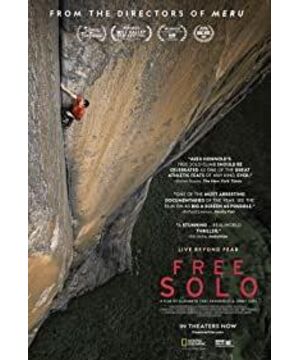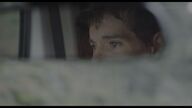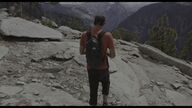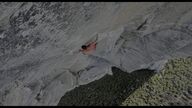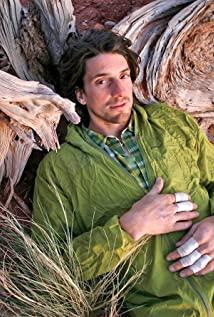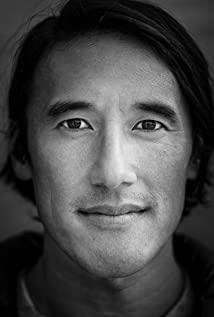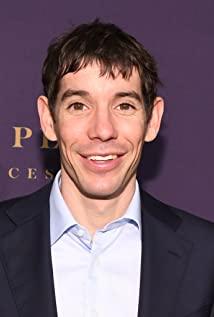"Free Solo" won this year's Oscar for Best Documentary. It made Alex Honnold, the world's top free rock climber, on fire for a while, and even became a male god in the hearts of some non-climbing enthusiasts, which also attracted a lot of attention. controversy. The so-called free rock climbing refers to rock climbing without protection and without auxiliary equipment. Like climbing a snow-capped mountain, rock climbing is an extremely dangerous extreme sport. It is a naked confrontation between people and the cliffs of nature. If you miss it, you will be shattered.
Is it worth risking your life for free rock climbing?
When I first entered Stanford University in 2010, the first news that shook me at school was that Christina Chan, a PhD student in the Department of Political Science, had just fallen off a cliff while free-handing in Yosemite. Christina was not only an outstanding young scholar, but also an up-and-coming rock climbing and mountaineering rookie in the world at that time. He once climbed Le Domanin Snow Peak with Yan Dongdong, the first real private professional mountaineer in China. And Yan Dongdong happened to be my senior and coach at Tsinghua University Mountain Field Association. Two years later, in 2012, Yan Dongdong also fell into an ice crack and died while climbing the Aksuxi Tianshan Mountains in Xinjiang.
The day after Yan Dongdong passed away, I wrote a commemorative article in which I praised Yan Dongdong's perseverance and courage in pursuing what he loved in spite of his worldly vision with the very idealistic feelings at that time. As soon as the article was published, my dad called me in the middle of the night. The original words were, "It's not easy for the country to train you for so many years. Don't go to the snow-capped mountains like the harsh winter." It is estimated that many old fathers and mothers who take their children to see "Freehand Rock Climbing" are in a cold sweat, afraid that the bear children at home will really regard Alex Honold as a hero, and they will also make a noise to practice freehand rock climbing.
So the biggest debate about the film "Freedom Rock Climbing" is whether it's worth risking your life to free rock climbing. In other words, why would someone like Alex Honold risk his life in an extreme sport that most people don't understand? Alex Honold dropped out of the prestigious University of California, Berkeley, as a freshman, and spent decades rock climbing alone in national parks across California, living in a van all year round. For many years before he became famous, he had no financial resources, but he spent almost nothing except simple food.
When I was younger, I would regard this kind of behavior as the awakening of a person's personal will, free from the constraints of the world, pursue what I love in my heart, and live truly free. In the past few years, I have read some books on free rock climbers, listened to a lot of interviews about them, and there are people around them who are obsessed with extreme sports, and gradually I have a better understanding of their true motivation. It is found that those who do not take the ordinary path are often not due to the awakening of free will, but they cannot walk the ordinary path, or they are very unhappy on the ordinary path. And only on the seemingly uneven, even dangerous trails, can they find true happiness.
The Lonely Childhood of Alex Honold
Alex Honold mentioned in the interview that his parents never gave him a hug, and no one ever mentioned the word "love" at home. In American culture, which likes to show love through body language, it's really rare. The explanation of Alex Honold's mother is that Alex's father has Asperger syndrome. Asperger's syndrome is a type of autism with a high IQ. Like all autistic people, this kind of person lacks the ability to communicate emotionally with others, but often has extremely high talents in mathematics, physics, computers and other fields. They also tend to become obsessed with something (monomania). Asperger syndrome is hereditary, and Alex's mother said that Alex's father was as obsessed with travel as Alex was into rock climbing. Alex was also a lonely and gregarious child from a young age, and his speech before class made him extremely panic. Unloved at home and unpopular at school, Alex's upbringing was unhappy, even painful. During his year at UC Berkeley, he lived like a loner, living alone off campus, not knowing or speaking to anyone.
Climbing gives Alex Honold more joy than ever
Alex, however, found great joy in rock climbing. There is probably no purer challenge than rock climbing and mountaineering: in the mountains far from the noise of the city, there are no complex interpersonal relationships, and the success of rock climbing depends entirely on the technical prowess of the individual. In addition, rock climbing has a special charm: the high difficulty and danger of rock climbing also make rock climbers have to concentrate fully and enter a state of ecstasy, or "flow" in psychology. This state also makes people feel less anxious and troubled that usually haunt their minds. The unique charm of this climbing is mentioned in Steph Davis' book "High Infatuation: A Climber's Guide to Love and Gravity". Steph Davis is a goddess-level figure in my mind. She is not only the world's top rock climber, but also has a very delicate inner world and a beautiful writing that can rival that of professional writers.
In the silent mountains, Alex enters an obsessive state of ecstasy on the rock wall during the day, and reads classical literature in his van at night. Here, he doesn't have to do what he's not good at: socialize with people. After he performed miracles on the rock wall again and again, the whole world came to him. In addition to publishing books, speaking all over the world, and starring him in the best documentary Oscar. He also met his girlfriend at a rock climbing sharing session and gained a wonderful intimacy that he had never experienced before. He gained recognition and joy like never before.
There's no mother in the world who doesn't worry about her son's safety, but Alex's mother said, "I can't bear to let him stop, because this He's really alive." It's conceivable that if Alex stopped rock climbing, he might really have to live like a walking dead. As Wang Feng sang in a song: "How many people live but die."
View more about Free Solo reviews


